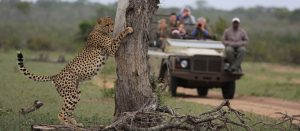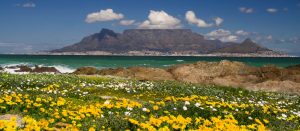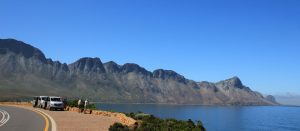Models of Integration: Exploring The South African Experience
Mary L Hardy, MD (Los Angeles, CA) & Marion Weston, MD (Cape Town, SA)



BACKGROUND
Despite explosive growth in research, education and practice of Western Integrative Medicine (WIM), no definitive consensus has been reached regarding healing philosophy, essential components and method of integration. Traditional medicine (TM) and traditional medical systems (TMS) have been particularly difficult to integrate in North America and Europe where no native TMS remains unbroken and intact. The Western response to TM follows several recurrent models: condemnation, cooptation of individual components, or parallel practice.
In contrast to the West, South Africa has two robust, co- existing systems of medicine: Conventional Western Medicine (CWM) and Traditional African Medicine (TAM).TAM provides medical care to 80% of the native black population, even for serious or chronic illness.
Further, TAM may have insights to address patient dissatisfaction with Western medical care such as issues of loss of meaning, depersonalization of medicine and lack of inclusion of the sacred or spiritual dimensions into CWM care. TAM in South Africa allows a unique opportunity to experience a model of the union of Body-Mind-Sprit in a vibrant, widely practiced and holistic medical system.2
PURPOSE
To develop a 2-3 week in country experiential and didactic curriculum designed to expose WIM practitioners to the breadth and complexity of integrative models including their components and practitioners in South Africa. This course would expose the WIM practitioners to both local technical expertise in researching, practicing and regulating TAM as well as the spiritual power inherent in traditional African practice.
METHODS
Scoping review of the literature of the research, education and practice of the components of TAM and models of integration in South Africa to inform evidence directed curriculum development.
Identification of relevant content experts to develop an appropriate didactic and experiential curriculum
Qualitatively evaluate and report on the experience of the curriculum by the participants (both the visitors and the local practitioners/ experts) and identify areas for further research.
RESULTS
Scoping research review:
Formal research of TAM and its components is not robust and very little of it is focused directly on the process of integrating TAM with CWM in South Africa. A number of descriptive/ ethnographic studies of TAM have been performed.
Reports of the attitudes, knowledge and evidence of CWM practitioners towards TAM documents ignorance of the basic philosophy and practice of TAM and significant resistance towards including by CWM practitioners. No research studies after the recent change in regulations were identified.
Studies of Traditional African Herbal Medicines (TAHM) were the most common by far. They include ethnobotanical, mechanistic, phytochemical and toxicity studies.
The majority of the studies involved a handful of commonly used botanicals and the few human clinical studies were mainly focused on plants and plant extracts developed commercially.
Curriculum Development
At the end of this course the participiants :
• Understand the basic tenents & practice of TAM & identify communalities with TM in general
• Be able to describe the models of integration in SA & determine how these models apply to their practice
• Explain how a TAHM develops from muthi to modern phyto medicine
• Examine how traditional healers have been critical to the public health of SA
• Understand the importance of the African ecosystem- it’s flora & fauna to healing & TAM
• Explore how the aspect of spirit can be integrated in WIM Diadactic Exeriences include (but are not limited to):
• Lectures by university researchers & local experts on herbal medicine, regulation and practice of traditional healers, response of the CWM & TAH to the epidemics of infectious diseases in SA
Experiential Sessions include (but aren’t limited to)
• Visit to the largest TAHM (muthi) market in Africa with an experienced guide
• Visits to a variety of local clinics and hospitals both CW &TAM as well as some integrated sites
• Visits to Sangomas (TAM diviners) & Inyanga (TAHM practitioners) to watch them work & participate in ceremony
• Visit to the largest botanical gardens, research centers in SA
• Consult with practitioners practicing IM in SA
TRIP & EVALUATION
Trip will take place in late June/ early July 2020
We will encourage WIM expert practitioners to participate. Ample time while traveling or around the campfire at night will allow for less formal discussions and interchanges.
In addition to the CME activites outlined, time will be spent on safari as well as attending local attractions.
Evaluation
Trip will be extensively documented. Qualitative evaluations will be solicited from the trip participants and the in country experts, healers and guides
CONCLUSIONS
TAM in South Africa is a unique, rich and robust resource that has maintained its integrity along side a first world conventional medical system. Recent regulatory changes provide a unique opportunity to observe the integration of the two systems. An appropriate curriculum will give participants a unique understand of traditional medical systems well as the challenges of integration with WIM models and CWM in South Africa.
South Africa provides a great example of the integration of CWM, TAM and other Complementary Health Care Professions can form an integrated primary health care system to address critical needs in a under resourced health system.
It is hoped that at the conclusion of the course a mechanism will be developed to continue an interdisciplinary, multinational discussion of the practicalities of integrative medicine begun on the trip.
REFERENCES
Wreford JT. Working with Spirit: Experiencing Izangoma Healing in Contemporary South Africa. Epistemologies of Healing. Volume 3; 2008, Berghahu Books, New York, Oxford.
Mothibe M and Sibanda M. African Traditional Medicine: South African Perspective. Intertech Open Chapter. Published Feb 4th, 2019. DOI: 10.5772/intechopen83790. Accessed online September 2019.
Moagi L. Transformation of the South African health care system with regard to African traditional healers: The social effects of inclusion and regulation. International NGO Journal, 2009. 4: 116-26.
For more information contact: mary@maryhardy.com, drweston@iafrica.com or for trip information
CONTACT US
Please send us an email to keep updated on the developments of this amazing travel opportunity. Within the next few weeks, the detailed program and prices will be posted on the site and sent out by email.


